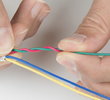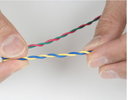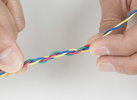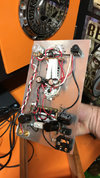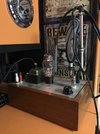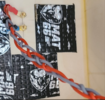walls
Well-Known Member
Picked up a new component stand and when moving the Cornwalls I noticed my somewhat pricey speaker wires were oxidized and turned green.
So I’m going to change them out, any of you have recommendations for good wire?
If memory serves I paid around $100 for what I have now, and honestly IMO at that price this shouldn’t have happened.
So I’m going to change them out, any of you have recommendations for good wire?
If memory serves I paid around $100 for what I have now, and honestly IMO at that price this shouldn’t have happened.

